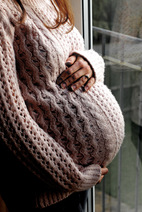 As shared in my post U.S. National Adult Immunization Plan, the push for adult vaccines in on; including vaccine recommendations for pregnant women. A document worth reading, especially if you or someone you know is pregnant or planning to be, is The National Vaccine Advisory Committee: Reducing Patient and Provider Barriers to Maternal Immunizations which was approved by the National Vaccine Advisory Committee on June 11, 2014. At this point, these are just "recommendations" but as you will see this document strongly recommends administering influenza and pertussis vaccines to pregnant women. Not only are infants being injected with the Hepatitis B shot within hours of birth; the pressure is on to inject them in the womb. Before you read further, take a minute to view the following video. The person speaking is CDC Whistleblower, Dr. William Thompson. In all fairness to practicing physicians, I think it is important to note that they are being dictated to by government committees and agencies -- many of whom are made up of fellow physicians. I had one physician tell me recently that not following guidelines can result in the loss of a physicians's medical license. As it states in several places throughout the document, there have been no pre-licensure safety and efficacy trials conducted in pregnant women for currently U.S. licensed vaccines. Post-marketing systems are used to determine safety; however, as you will read below, the report acknowledges that physicians are not reporting suspected adverse effects! It appears to me that the pregnant women who agree to these vaccines are -- perhaps without their knowledge -- agreeing to be part of the "safety study" and based on what I have learned from moms who have had adverse effects following vaccines during pregnancy -- and as supported below -- suspected adverse effects are not always recognized, believed or reported. Every person should evaluate the risks and the benefits of vaccines and make an informed choice for themselves without pressure from doctors, government agencies, and even well-meaning family and friends. You can always choose to vaccinate; but you can't always undo the damage a vaccination has caused. No matter what one's view is on vaccines, it's important that we have the right to choose what is being injected into our bodies and into our children -- both born and unborn. Please continue to pray for the protection of vaccine choice rights. Thank you! Excerpts from the Reducing Patient and Provider Barriers to Maternal Immunizations document . . . 2.1. The ASH* should recommend that obstetrical care providers follow the published guidelines of professional organizations and government agencies to improve vaccination rates in their practices. *Assistant Secretary of Health 5.1. The ASH should support efforts by HRSA* to address the issue of including in utero injuries allegedly incurred following maternal immunization within the Vaccine Injury Compensation Program (VICP). The ASH should support resolution of the issue regarding infants born with alleged in utero injuries in favor of allowing such claims to be pursued under the VICP and in favor of providing settled liability protections to vaccine manufacturers and administrators. * Health Resources and Services Administration Page 24: Data collection for vaccine safety information in pregnant women Vaccine manufacturers are reluctant to initiate clinical development programs to specifically study the safety and efficacy of a vaccine in pregnant women to support an indication for the product during pregnancy due to various reasons including financial and liability concerns. . . . Also, pregnant women are usually excluded from participation in clinical trials for products for which no specific indication for use during pregnancy is being pursued. Consideration should be given to include pregnant women in clinical studies for some vaccines conducted at advanced stages of product development to gather safety and effectiveness data in pregnant women even though the studies may not be powered to support an indication for use in pregnancy. Page 24: Post-marketing vaccine safety surveillance systems As mentioned previously, for currently U.S.-licensed vaccines there have been no pre-licensure safety and efficacy trials conducted in pregnant women to support an indication and usage statement for use in pregnancy in the vaccine’s prescribing information. In general, data on vaccine safety in pregnant women are collected through post-marketing surveillance systems. Page 26: Post-marketing systems will always remain a critical component of vaccine safety surveillance, especially in pregnant women, because of lack of data from pre-licensure studies. These systems have provided reassuring data on the safety of vaccines used in pregnant women, but continued data collection is needed to ensure timely identification of vaccine safety signals. . . . Although providers are required to report certain possible vaccine adverse events to VAERS not all providers are aware of these requirements. For example, Eckert et al. found that of 327 ob-gyns surveyed, fewer than 10% had ever used VAERS.145 Similarly, Kissen et al. found that fewer than half of ob-gyns surveyed reported suspected adverse events following administration of the influenza vaccine. In addition, providers may not know to report possible adverse events not listed in the Vaccine Injury Table or otherwise listed in the package insert. Failure to report weakens the robustness of safety systems to detect possible rare or unexpected adverse events. Therefore, additional outreach and education of providers on reporting requirements and the available vaccine safety surveillance systems could increase data collection and improve provider confidence in vaccine safety for use in pregnant women.
0 Comments
Your comment will be posted after it is approved.
Leave a Reply. |
Author"Why I started researching vaccines." Archives
July 2024
Categories
All
|
 RSS Feed
RSS Feed